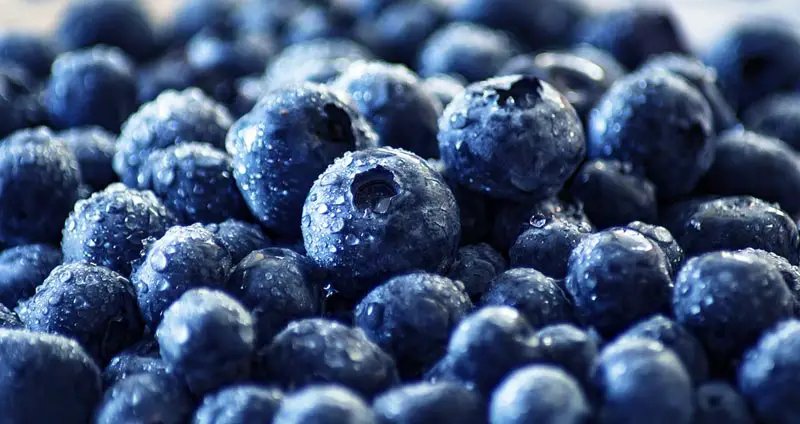Blueberries are one of those fruits that are able to be enjoyed year-round in so many different ways. This is a fruit that’s packed with nutrients such as potassium folate, fiber, vitamin C, and vitamin B6. On top of this, they’re great antioxidants and taste phenomenal. With all of the benefits that come with blueberries, you may be wondering: Can gerbils eat blueberries?
Yes, gerbils can eat blueberries as an occasional snack. While they aren’t the most healthy snack for gerbils, they’re not dangerous when fed in small quantities. So, when fed appropriately, blueberries can make for a nice occasional treat.
Table of Contents
What Do Gerbils Eat In The Wild?
In order to better understand why gerbils shouldn’t eat a lot of blueberries, it helps to know what they naturally eat in the wild. Gerbils have only been kept as pets for a short period of time, so for thousands of years they’ve roamed throughout Central Asia, Africa, and the Middle East. During this time they’ve eaten roughly the same foods, optimizing their digestive systems for the consumption of those specific foods.
This makes it very important to match your gerbil’s diet to the diet of a wild gerbil — their bodies are designed to eat a certain way!
While gerbils are classified as omnivores, they have diets that very closely resemble herbivores. This means that gerbils are able to eat a wide variety of different foods, but a majority of their diet consists of an array of plant matter. Due to this, gerbils get most of their necessary nutrients through foods such as fruits, vegetables, and grains.
In the wild, gerbils are scavengers, eating any food that they happen to come across. So, while the exact diets of gerbils vary depending on their geographical location, general dietary trends do arise. A gerbil’s diet is primarily made up of nuts, seeds, fruits, grasses, roots, bulbs, and even bird eggs!
Health Benefits & Dangers Of Blueberries
It should be clear now why gerbils are able to safely eat blueberries, but maybe not benefit immensely from them. Gerbils don’t have access to blueberries in the wild, but they do eat some foods that are similar in nature, allowing them to digest the blueberries and get some nutritional value out of them.
There aren’t any serious health problems that can arise when you feed your gerbil small amounts of blueberries, but larger amounts can cause issues. Blueberries are fruits that contain a decent amount of water and sugar, although their sugar levels are decently low for fruits. High sugar and water consumption can lead to bloating, indigestion, weight gain, and dehydration in gerbils.
Another point that you may want to be aware of is that gerbils should never be given foods that contain seeds or pits as they can cause complications. Blueberries do contain seeds, but they’re so small that they won’t cause any issues, especially when fed in small amounts.
Despite these downsides, and despite the fact that gerbils’ digestive systems aren’t designed for blueberry consumption, they can still make for a tasty treat when fed properly and worked into a complete diet.
How To Properly Feed Gerbils Blueberries
Luckily, it’s not a difficult task to feed blueberries to your gerbil. However, there are a few things that you’ll want to be aware of to ensure the safety and overall well-being of your gerbil when feeding them this fruit.
In terms of serving size, a small blueberry fed about 2 times per week is generally considered a healthy and safe amount. Some owners may opt to feed their gerbils slightly more or less than this amount, but it’s up to you to observe your gerbil and make sure that they’re reacting well to the food that you’re giving them. When feeding these blueberries, it helps to cut them into smaller pieces to prevent choking and allow for easier access to the juicy part of the blueberry.
If you are set on supplementing your gerbil’s diet with an occasional blueberry, you first need to ensure that their nutritional needs are being met. Although blueberries are quite nutritious, they’re nowhere near nutritious enough to act as a staple in your gerbil’s diet. Because of this, it’s necessary that you ensure that your gerbil is having their nutritional needs met before thinking about supplementation with fruits and vegetables.
The majority of a gerbil’s diet should be made up of a high-quality seed mixture. This acts as a staple in their diet because it provides a diverse array of nutrients in a very tasty form. Once you’ve ensured that your gerbil is getting enough nutrients through their seed mixture, then you can focus on supplementation.
Ways Gerbils Can Eat Blueberries
There are a couple different ways that gerbils can eat blueberries! Their weekly blueberry doesn’t have to be limited to the blueberry that we all know and love. Below are some of the most popular ways that blueberries are eaten and whether or not they’re healthy for your pet, too.
- Fresh blueberries – This is the normal way that blueberries are eaten, and they make for a very tasty and easy snack! You can either purchase these in a store or even grow them in your own backyard. Make sure that these blueberries are cleaned thoroughly and any stems are removed.
- Dehydrated blueberries – These are simply blueberries that have had about 90% of their water content removed. Although this is a pretty easy change to make, it makes a world of different for gerbils. The change in flavor in texture is fantastic. It should be noted that these blueberries will have a higher concentration of sugar, so be sure to adjust your feeding portions appropriately.
- Frozen blueberries – This is a great hot weather snack that both humans and gerbils love. Putting a few blueberries in the freezer will help to preserve them and keep them ready for a quick snack. Just be warned that these blueberries will be messy, so be ready to clean any leftovers out of your gerbil’s cage.
- Blueberry jam – While blueberry jam is delicious, it should definitely never be given to gerbils. Jam contains large amounts of sugar and not enough nutrients to be worth feeding. It also often contains pectin or lemon juice — ingredients that are very unhealthy for gerbils.
Other Healthy Snacks For Your Gerbil
While blueberries do make for a nice little snack occasionally, there are definitely better gerbils snacks out there. Unfortunately, there aren’t many good commercially-available gerbil snacks out there, but there are plenty of healthy fruits and vegetables that act as viable treats.
- Apples (without seeds)
- Bananas
- Broccoli
- Carrots
- Cauliflower
- Cucumber
- Lettuce (in small amounts)
- Strawberries

